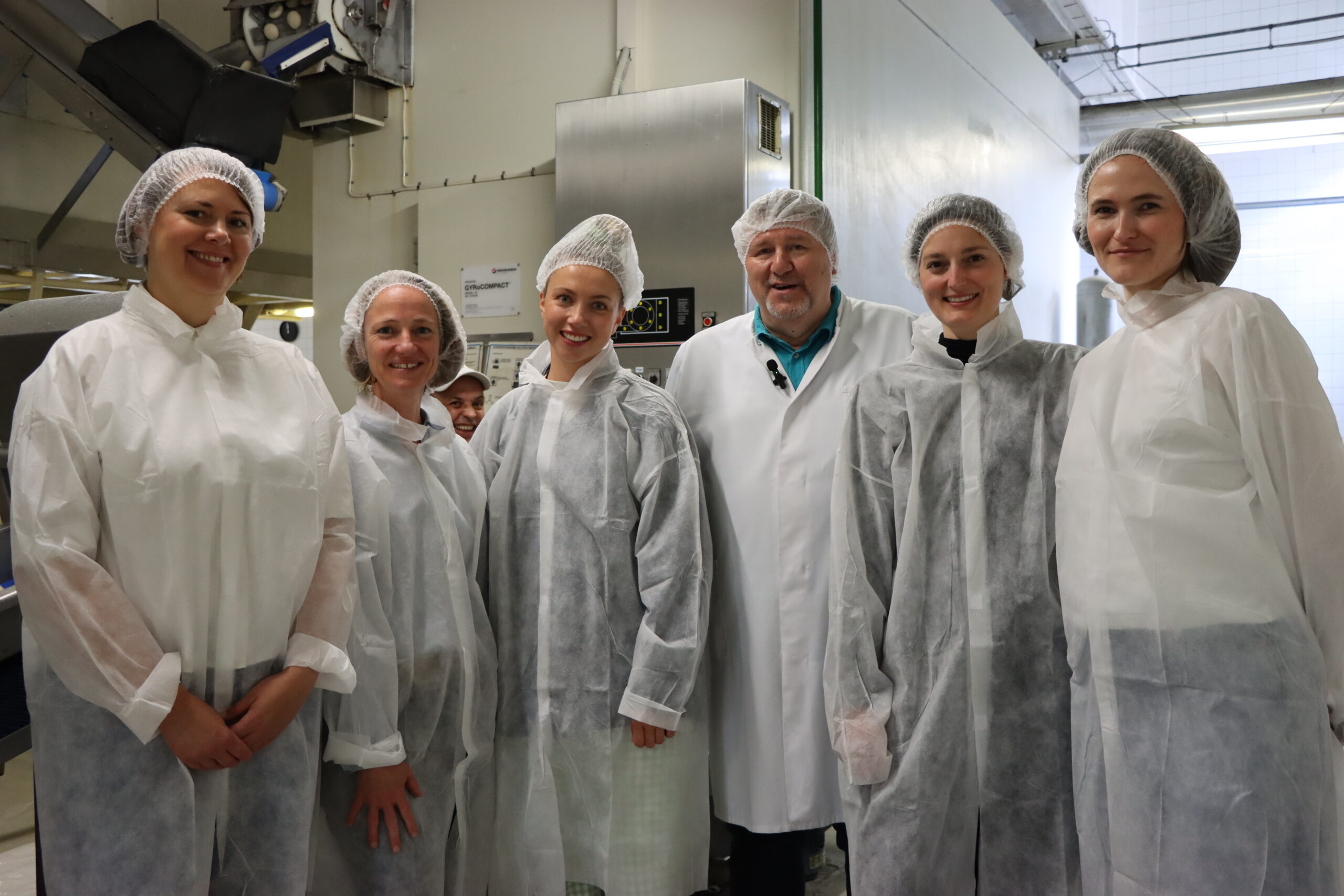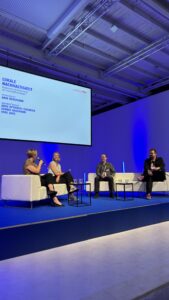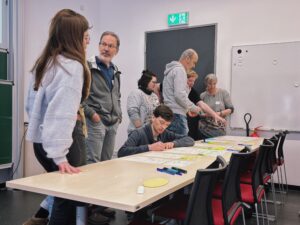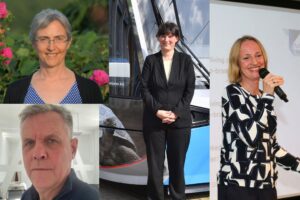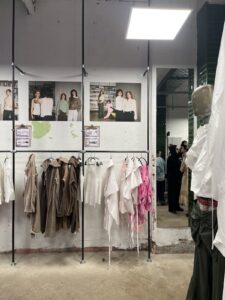Group Photo in the Oderfrucht GmbH-Production; from left to right: Karolina Anna Witzki (IHK Ostbrandenburg),Dr. Anke Bytomski-Guerrier (TFL), Rebecca Jaeger (TFL),Gerd-Harry Schulze (Oderfrucht), Charlotte Francke(TFL), Sophia Pschiuk (TFL) // © Ina Matthes
Oderfrucht GmbH and Frankfurter Brauhaus have achieved a significant milestone: their first (and second) CO2e balances.
Through intensive collaboration, the numbers have provided eye-opening insights. It was clear that yeast causes dumplings to rise, but Oderfrucht discovered during the balancing process that packaging significantly contributes to greenhouse gas emissions. Buildings and heating systems are the usual suspects for CO2 emissions at both companies. The good news: ecological efficiency can also mean cost efficiency.
Oderfrucht proudly produces 12,600 yeast dumplings per hour, with steaming and freezing being energy-intensive processes. Transforming the production model, which has been successfully operating since the GDR era, to more sustainable and cheaper energy sources is not an easy task. For the management duo Gudrun Ademietz and Gerd-Harry Schulz, the goal is clear, yet the path to achieving it remains challenging, especially since selecting the right technologies depends on local and political circumstances.
Photo: Dumpling Production // © Ina Matthes
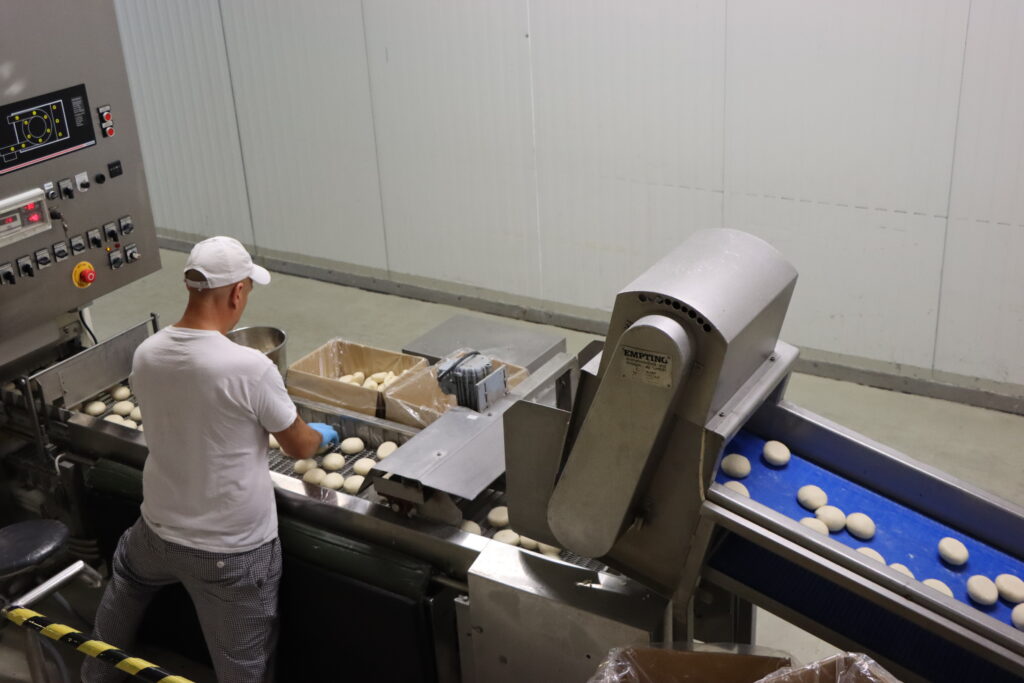
Schulz, who has been part of Oderfrucht since his apprenticeship, emphasizes: “Doing nothing is not an option. You have to believe in the future.”
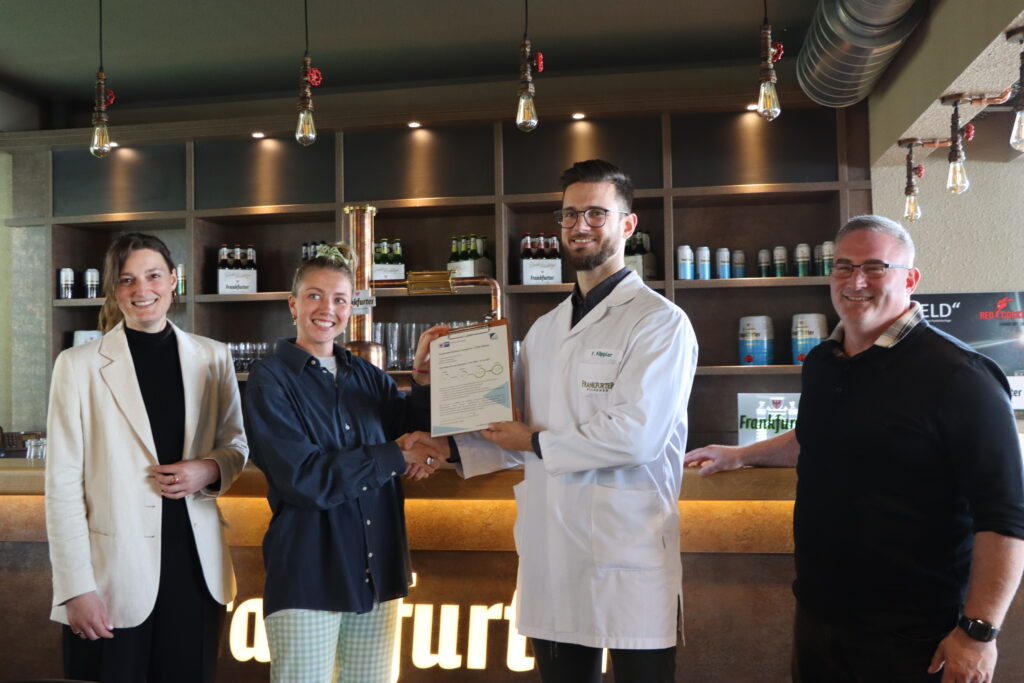
Felix Käppler, head of quality management and environmental officer at Frankfurter Brauhaus, has long been exploring ways to capitalize on the synergy between resource and cost efficiency. The equation doesn’t always balance perfectly, as Frankfurter Brauhaus uses recycled PET for its bottles. It’s more ecologically sustainable and now mandatory, but also more cost-intensive. Currently, around 16 million beer bottles are stored on-site—a considerable number that also factors into the packaging and transport expense calculations.
Photo: Handing over the certificate at Frankfurter Brauhaus; from left to right: Charlotte Francke und Rebecca Jaeger (The Future Living); Felix Käppler und André Pflaum (Frankfurter Brauhaus) // © Ina Matthes
Käppler completed the first CO2e balance in 2022. In the first greenhouse gas balance with The Future Living, the transport sector balance was refined, the materiality analysis was added, and a few inaccuracies were rectified. Käppler’s next ambitious goal: “To balance the TCB group as a whole.”
